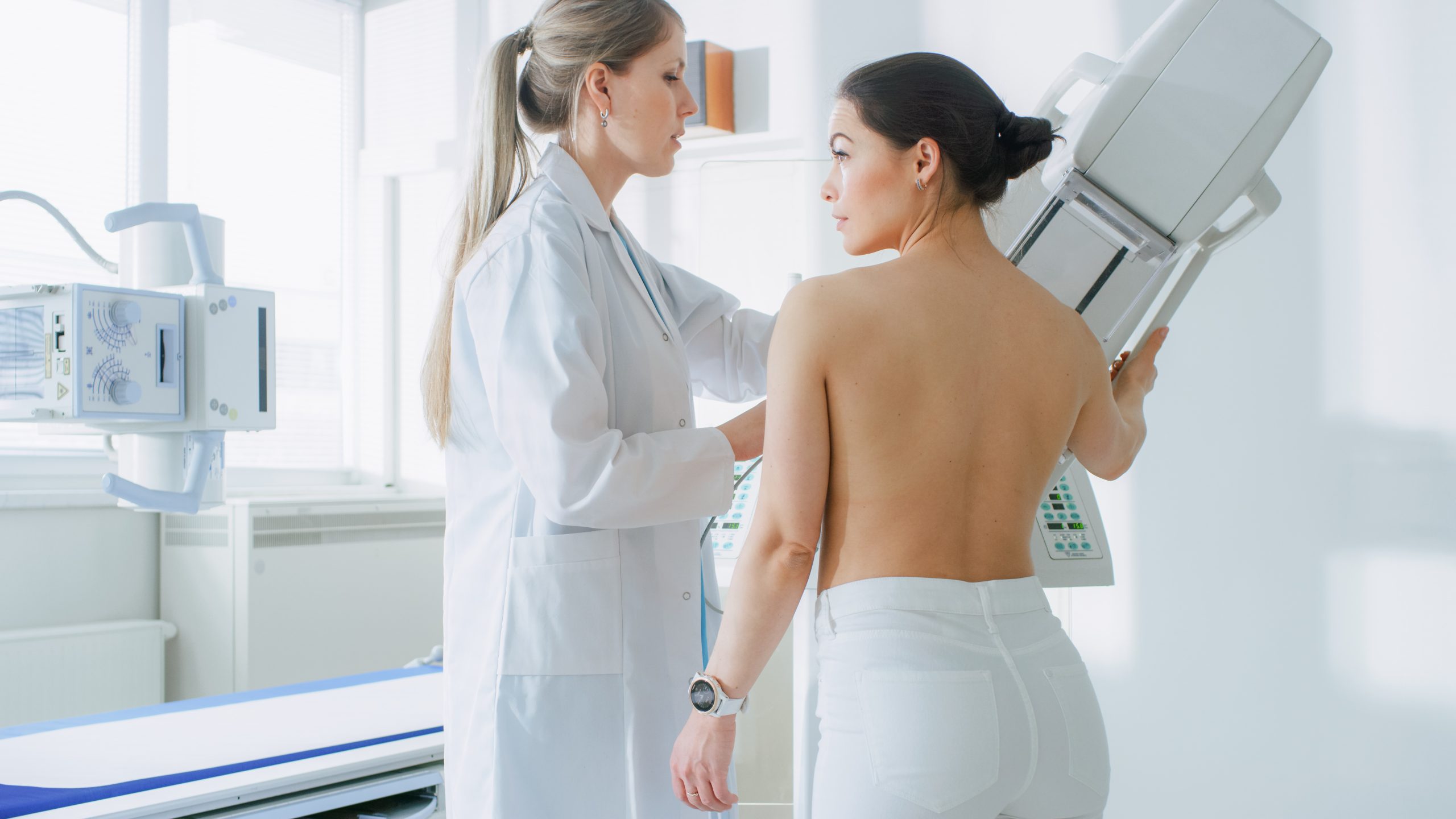
Breast screening remains as crucial as ever, as we begin to see the impact of delayed screening due to the Covid-19 pandemic. Many breast specialists are sharing examples of patients with more advanced-stage cancer diagnoses due to these mammography delays. In the United States during 2021, there will be an estimated 281,550 new cases of invasive breast cancer diagnosed in women and 43,600 deaths, higher rates than seen in previous years, possibly due in part to pandemic-related screening slowdowns.
An analysis conducted by the American Cancer Society estimates that 63 percent of eligible women should have been screened in 2020, if trends from previous years had continued. In reality, less than 50 percent of these women were imaged for breast cancer last year. This equates to roughly 47,517 fewer mammogramsA low dose x-ray picture of the breast that allows a doctor to view glandular tissue and determine the presence of cancer. and 242 missed diagnoses. According to the CDC, prolonged delays in screening related to the COVID-19 pandemic may lead to delayed diagnoses, poor health consequences, and an increase in cancer disparities among women already experiencing health inequities. The potential consequences are especially acuteOccurring suddenly or in a short space of time, as opposed to chronic. for racial and ethnic minority groups and low-income women who saw a decline in cancer screening when their access to medical services decreased at the beginning of the pandemic.
The evidence is clear, both pre- and post-menopausal women who undergo annual screening mammography have fewer late-stage breast cancer diagnoses, fewer interval cancers, and smaller average tumorA mass of cells that can be benign or malignant. size, according to the American Journal of Roentgenology. Plainly, breast screening can save lives.
After receiving a vaccination against COVID-19, some women may experience swollen lymph nodesSmall, bean-shaped collections of immune tissue that filter out cell fluid and bacteria that may be circulating in the body. They help fight infections and play a role in fighting cancer. under the armpit, which can feel like a sore lump. These enlarged lymph nodes can be detected during mammographic screens. So, whether you are going for your first vaccination or are getting your booster, The Society of Breast Imaging recommends that women wait 4-6 weeks either before or after vaccination to schedule their annual mammogram to ensure no false positives are detected.*
We know that yearly mammograms can save lives, don’t delay and make your appointment today.
* Updated April 2022. Delaying mammograms after COVID vaccine is no longer recommended.